{1. The rain/opening credits [1] }

{2. The quarrel}
{3. Achilles and Thetis}
{4. Thetis and Zeus}
{5. Hector, Andromache, Astyanax}
Andromache, Eetion’s daughter —
Ah Eetion, who lived below Plakos,
Oh in Thebes from below Plakos —
his daughter came running to Hector… [40]
Andromache runs toward him, holding Astyanax, who is smiling, brightly, [41] because of the bumpy ride in his mother’s arms. Hector looks on smiling, in silence; Andromache’s tears flow. [42] A motionless scene of smiling and flowing, a moment longer than it’s comfortable: you cannot understand whether the reel is stuck, or whether the three have turned into a black-and-white picture, animated only by the flickering of the film. And then it moves on.
{6. Greeks and Trojans in the night}
{7. The Greeks are pressed by Hector}
Like children or widows, you weep to return home.
It’s toil and grief, the wish to return home. [48]
The camera stops on a chance face, excitable and young, which turns toward the motionless camera as he goes away, slowing down a bit. The voice-over: Nireus of Simi… Nireus of three ships… Nireus the most beautiful of all,| Except for Achilles… [49] Nireus stumbles, jumps up and hastens to catch up. [50]
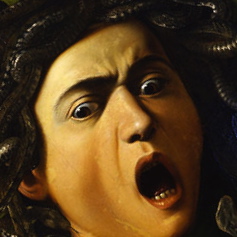
{8. The embassy}
Achilles and Patroklos by the piano. [58] Schubert; then, Andromache’s tune. [59] At the delegation’s entrance, Achilles springs up. [60]
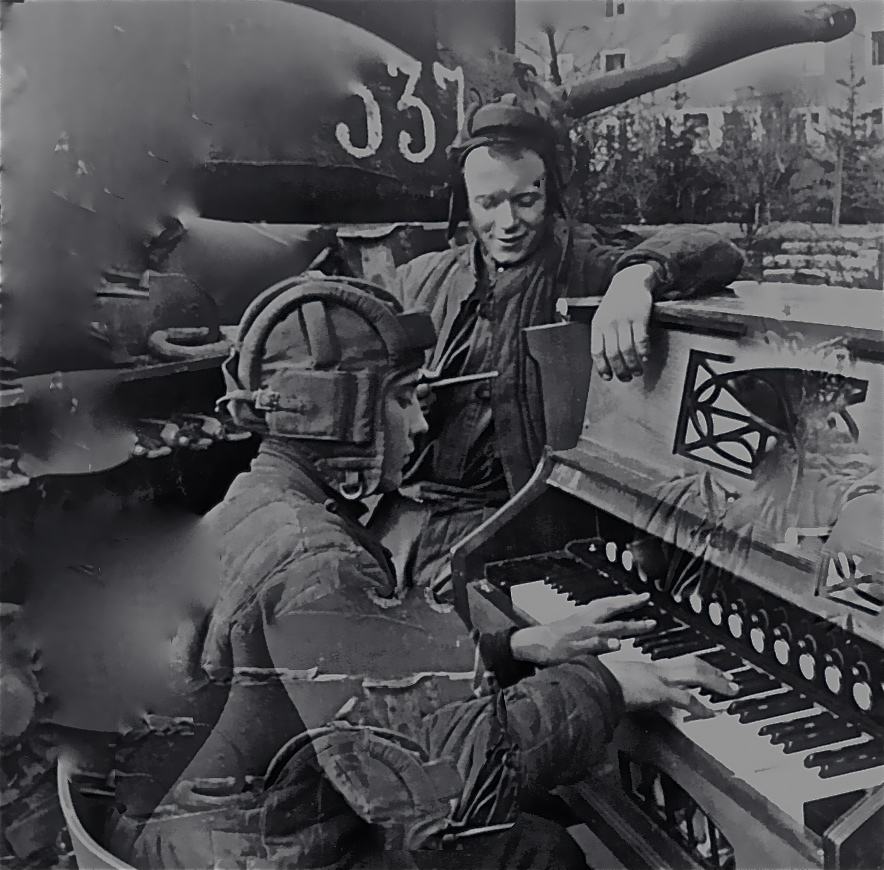
Image by multipleusernamedisorder
{9. Hector sets fire to the ships}
{10. Patroklos’ aristeia and death}
A brief echo, from afar: Oh Eetion… [90] Patroklos and the Myrmidons around him: packed-in movements and glints of armor. [91] They are arming, hastily, to a Myrmidon war song:
Lapping up black water.
Their tongues are slender,
Their jaws are murder,
Their jaws are murder,
Lapping up black water. [92]
{11. Fighting over Patroklos}
{12. Lament for Patroklos}
{13. Achilles returns}
{14. Achilles fighting}
Will the earth now hold him down? For
it holds a stronger man fast and close. [130]
A flashback: night. [131] The face of Lykaon, which is very beautiful, between fig branches. [132] Turning toward the camera slowly, with an expectation of happiness. The expression changes to terror. [133] A cut to the present time. Naked Lykaon from Achilles’ point of view, at his feet, holding on to Achilles’ spear, pleading frantically: the words are not audible. [134] Achilles: No, dear, you will die. So did Patroklos. And one morning or night or midday, I will, too. [135] Achilles’ face, shot from a low angle, tender. Lykaon lets go of the spear and melts onto the ground. [136] Achilles strikes him on the clavicle with a sword, which sinks in without any resistance. [137] Achilles, looking for the next person: Formerly, I suppose, it was easier to appease me. Now you hear a harsher voice. Perish you all: horses, heroes, seers, prophesies; I will pursue you till you pay the price for Patroklos. [138]
{15. Water and fire}
{16. Fight of Achilles and Hector}
Hector raises his head: a shot of Achilles, unexpectedly close. The vision is blinding, like a nearby explosion. Details are lost in the glare; visible are a spearpoint and Achilles’ eyes. [147] The chase begins.
{17. Andromache’s lament}
{18. Postmortem chat}
| 3:05 AM | you sleep achi;;es |
| and have forgotten me | |
| 3:06 AM | you loved me living |
| but mow | |
| 3:08 AM | that I am dead |
| you think og me no further |
|
| 3:09 AM | fury |
| *bury me withall speed that I may pass the gates pg hades |
|
| 3:11 AM | the ghosts drvie me away gtom them |
| (Patroklos is typing) (Patroklos has entered text) |
|
| 3:14 AM | I wander desolatr |
| by the wise gates of the house of hades | |
| 3:27 AM | you know you also soon |
| 3:28 AM | Achilles godlike |
| 3:30 AM | you will die |
| ————connection lost———— | |
| 3:34 AM | something else |
| don’t tel *let my bones lie apaty *apart from yours |
|
| 3:37 AM | when I was small |
| 3:38 AM | your attendant |
| 3:42 AM | our bones also put them togther in that vase golden two-handleld |
| 3:48 AM | you mother gave you |
| Achilles: | |
| 3:49 AM | why dearest have you come and tell me all these things I will do everything exacltly but can we hug jusr for a moment can we cry toegtehr |
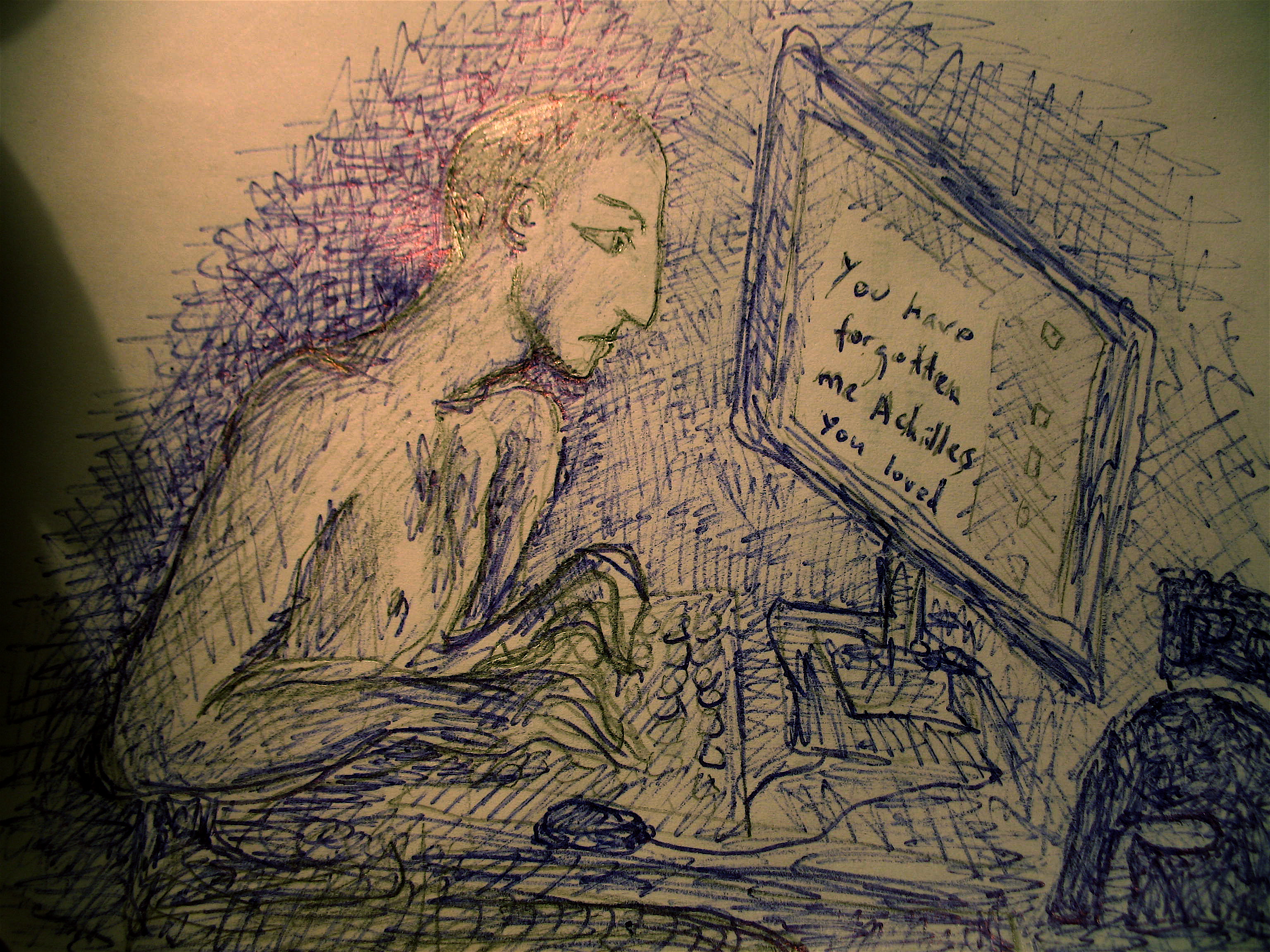
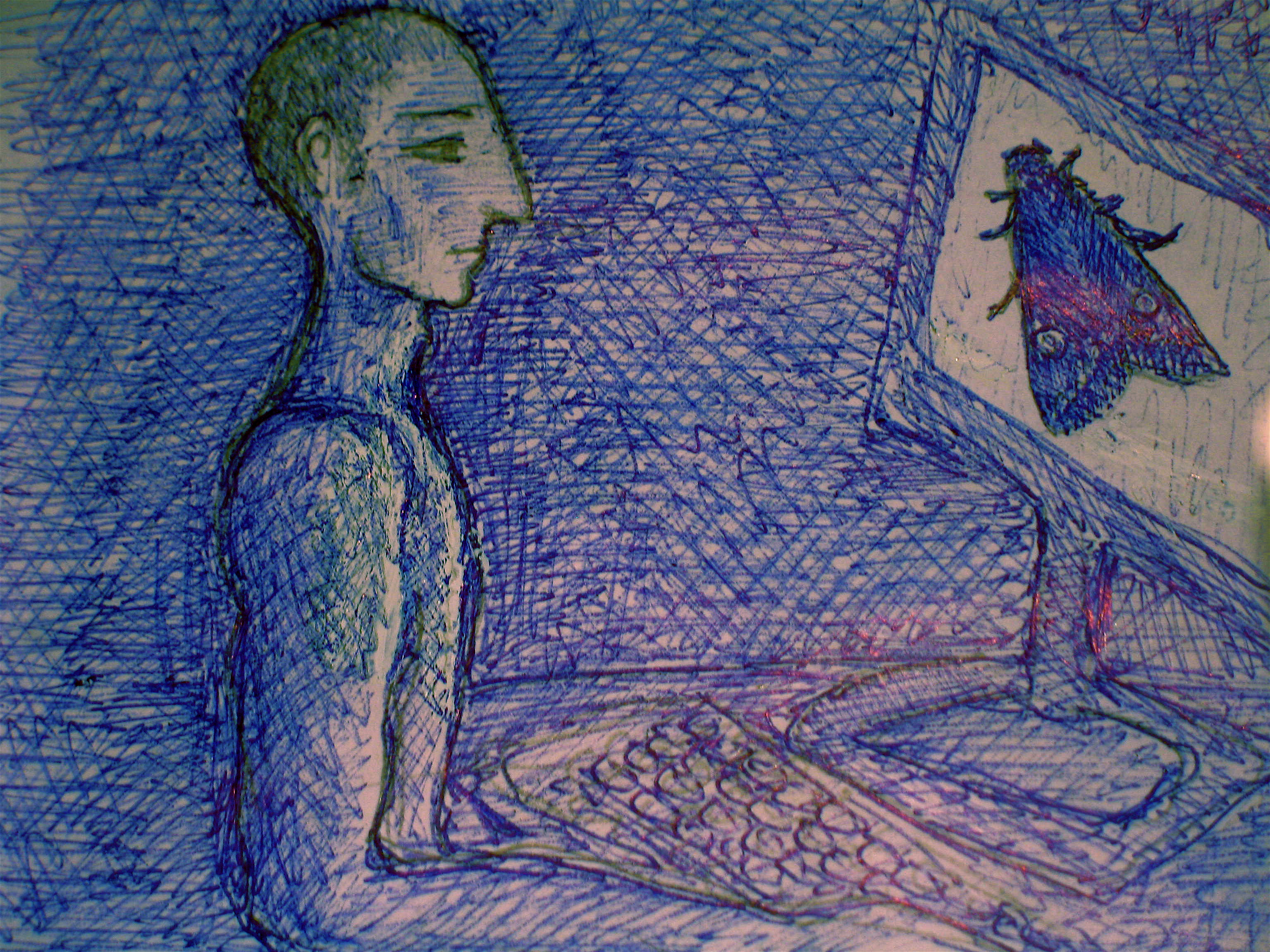
{19. Patroklos’ funeral}
{20. Dragging of Hector}
{21. Thetis goes to Olympus}
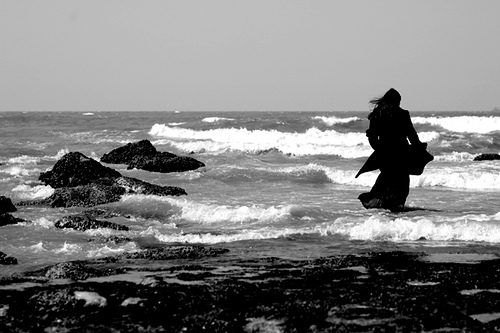
Image by artofdreaming
